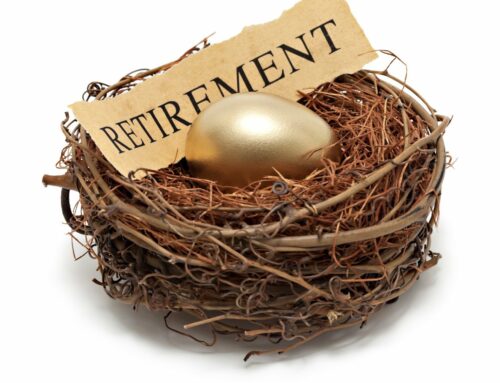
What inspired you to enter the financial Industry?
In my formative years, I saw my loved ones endure the hardships of financial struggle. As a child of a single mother, I watched her work as hard as she could to provide for her family. From this, I developed a deeply rooted drive to positively impact the financial lives of others.
To this day, I am driven to provide financial stability, peace of mind, and freedom to others and their families through creating and executing a solid, well-informed plan.
What do you enjoy the most about working with retirees and pre-retirees at SHP Financial?
Personally, I enjoy being an educator and showing our clients how to be an informed decisionmaker. It’s rewarding to see some people have extravagant plans for retirement and work towards fulfilling their goals, knowing exactly what it means to them. And it’s interesting, others are unsure or even fearful to go from being savers their entire lives, to becoming spenders in retirement. Because when you retire, you are signing up for ideally 20+ years of unemployment. How do you make your assets last longer than you do, after taxes, with inflation, and fighting unexpected costs or healthcare concerns? It excites me to show people what is possible and help them achieve their dreams.
What are common concerns you hear from prospects and clients you meet with?
I hear two concerns repeatedly: Taxes and market losses. Each piece is important and crucial when it comes to planning for retirement.
Taxes can be a three-headed monster: income, capital gains, & estate/death taxes. Each is important to control and plan for, however, some can be more of a concern than others. The most common issue I see is having too much of your savings in pre-tax retirement accounts such as IRAs, 401(k)s, 403(b)s, 457s, etc.
The amounts in these accounts will be taxed based on your income rates in the future. Essentially, this means that these dollars have an IOU to the IRS attached to them at rates that they get to decide in the future. With our tax rates set to change/increase in 2026, it may make sense for some individuals to shift some of these funds to more tax-efficient options like Roth retirement accounts or after-tax funds while taxes are on sale.
Also, with required minimum distributions beginning for individuals in the future, these funds can increase tax liability if you do not need all this extra income to meet your lifestyle requirements in retirement. That old saying “you will be in a lower tax bracket in retirement” may no longer hold true.
For volatility, the most overlooked thing is how math affects your money. “Why risk what you have for what you don’t need?” is something I say often. Think of it this way, a 20% loss of 2 million dollars hurts a lot more than a 20% loss did in the accumulation stage of your life when you only had $100,000. You need to ensure you structure time for the assets you leave vulnerable to the market to grow because time is the one thing you have less of in retirement – less time for your funds to bounce back after a downturn. You need a plan and a blend of investments to ensure the math works in your favor.
How Does SHP Financial help solve common concerns for those in and preparing for retirement?
As an independent firm, we have access to all tools, solutions, and investment strategies that exist, allowing us to ensure a comprehensive plan for our clients that is true to their unique financial situations and goals.
We also have partnerships with CPAs and Estate planning attorneys to ensure each of the five steps of a client’s financial plan is covered. This also ensures that they are educated on all their options, including the pros and cons of each strategy they have available to them.
Out of the SHP Retirement Roadmap Process and any other services SHP provides, which ones do you like the most, and which one(s) do you have the most experience in?
Personally, I find that tax and investment planning is the most rewarding SHP service to provide to clients.
No matter your asset or income level, everyone wants to save money in taxes. Helping clients understand the ‘knowns’ they can control, such as tax law, helps me alleviate the concerns they may have with things that are unknown, such as how the market will perform in the future or throughout their lifetime.
I also love helping clients protect, grow, and enjoy their wealth. Helping my clients spend with confidence so they can enjoy the retirement they’ve dreamed of is what gets me up in the morning. Through the various tools and strategies available, I can help clients ride out times of volatility like the one we’re going through now, while still enjoying the confidence to live out the dreams and plans they have set for themselves.
What is your greatest piece of advice for those who will be retiring within 10 years?
Start planning now! No one ever said they began planning too early.
There are so many tools and strategies that can and will change soon. You need to begin leveraging and controlling the knowns today, capturing the opportunities that are available to you, and maximizing your financial situation. The market should never dictate your lifestyle in retirement, but without a plan in place, a market downturn as you enter retirement could throw off your whole retirement, leaving your golden years looking a lot differently than you hoped.
What is your best advice for those who are already retired?
Take a second look at your situation and ask, “Could I be doing more? What are my goals, fears, and dreams for the short- and long-term? Is there anything I am missing?”
It may be time to leverage a potential opportunity. And depending on your situation, you may have a window of opportunity that is closing if you don’t start looking ahead.
Can you cite an example of a specific, complex problem that you had to solve? How did you approach solving it?
Unfortunately, in our industry, we deal a lot with the fact of life, which is death, and as a result, inheritance. Estate planning can be complex, time-consuming, and very expensive if not done properly or ahead of time.
I had a client who lost two family members close to her in a short period of time. Not only did she have multiple probate issues to deal with, but she had to navigate the complex world of estate transfers. Everything works differently depending on the tax status of the funds, where the assets are held, and how they are titled, and it can be extremely overwhelming.
With a strong financial team behind her, I worked directly with her attorney to navigate probate, protect and grow what she had inherited, and limit the tax liability for her and in the future for her beneficiaries. Without a solid team behind her, she would not have been able to navigate these areas efficiently and could have made mistakes that could have cost her significantly in the long run.
Why is it so important for those in or near retirement to speak to a financial professional?
As you close in on your retirement date, it’s crucial to know where your retirement income will come from. You cannot simply pull from an account, keep your fingers crossed, and hope it lasts. You need to ensure you have a sustainable plan in place to supplement income the moment retirement happens and for the rest of your life.
You’ll need an investment plan to ensure your assets last; a tax plan to ensure you keep as much as possible; a healthcare plan to limit the concern of a healthcare event derailing your financial plan; and a legacy plan to ensure your assets pass to the individuals you care about or to the organizations and institutions that mean something to you.





